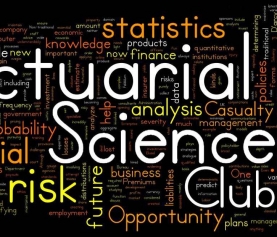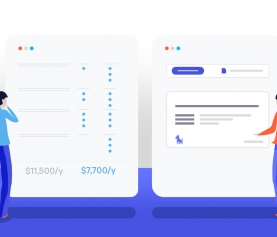
Health Insurance: It’s Not Just for Your Grandma.
Health Insurance: It’s Not Just for Your Grandma.
Open Enrollment is almost here! Starting November 15, you’ll be able to sign up for new health insurance plans. And signing up is a pretty good idea; this year, if you don’t purchase a plan, you’ll be fined $695 or 2.5% of your income, whichever is greater.
You are young, energetic, and at that time in life when pop-culture references probably still make some sense. You may be an avid adventurer, a career-driven 9-5er, a recent university graduate, a world traveler or any combination of these and beyond.
Although you might feel young and invincible, you still need to get covered. But the good news is, if you’re young and healthy, a little insurance can go a long way. You’ll get access to discounted care and protection from financial ruin in the unlikely event of a serious health issue.
5 Tips to Finding the Perfect Plan
1. Don’t skip out on insurance: Even if you’re young and healthy, you still need coverage. Insurance provides you with a network of healthcare professionals who give you access to free services such as flu shots, vaccines, regular check-ups and health screenings. If you get injured or sick, insurance protects you from paying the full cost of care — treating a sprained ankle could mean shelling out over $1,200 without insurance, but with insurance, you could pay under $100. What’s more, new federal laws require that everyone purchase insurance or else pay a hefty penalty equal to 2% of your income on your 2015 tax return.
2. Save money, consider a Catastrophic Plan: Anyone under 30 has special access to “Catastrophic” plans, a type of health plan that saves you big money if you stay healthy. With low monthly premiums and high deductibles, these plans provide you discounted access to basic care and cover you in an emergency without breaking the bank. In other words, they’re an inexpensive way to stay healthy and, in the event of a medical catastrophe, avoid bankruptcy.
3. Consider a Health Savings Account (HSA): An HSA is a taxed-advantaged savings account that can only be used for certain health-related expenses. Because you don’t pay taxes on the money you put into an HSA, it’s a powerful financial tool that helps you plan for the future and save money. Consider this: If you’re an average individual paying about 25% of your income in taxes, you can effectively stash away $100 in your HSA while only reducing your take-home pay by $75. That’s like getting $25 for free. Even if you have insurance now, check your plan – you can use an HSA to pay for many types of coverage including employer plans.
4. Still under 26? Talk to your parents: Your parents can provide you with coverage until you’re 26 by adding you as a dependent on their plan. Even so, a well-priced plan on the individual market may cost your parents less than adding you onto their existing policy. If you’re on their plan now, do them a favor and see if it would be cheaper for them to buy your coverage on the individual market instead. TREK can help you compare your options for free.
5. Calculate your subsidy: Under the new healthcare law, young adults who make approximately $46,000 or less qualify for government tax credits. This year, approximately 17 out of 19 million uninsured young adults qualify for tax credits or low-income government plans like Medicaid. You might just be one of them. Use TREK to check your eligibility – you could even qualify for free insurance (which sure beats paying a fine for going without it)!




